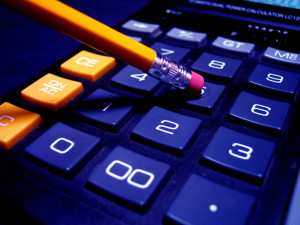
Sometimes it can prove challenging to keep the money in your bank account, in your bank account. The little expenditures can add up before you know it, and it is easier than one might think to be left looking at a depleted checking account and a savings account with less than a tenth of your yearly salary. Everyone seems to have money saving tips to offer up, “Get rid of your cable bill” or “Look at all of your receipts at the end of the month”. Below you can find five money saving tips that you might not have ever heard before.
Keep the Change
Think about it, how much change do you have collected in your car’s cup holder, couch cushions, or other random places? When people evaluate their financial situation, seldom do they take into consideration their loose change that constantly collects. Instead of throwing your change into the bottom of your pocket after making a purchase, choose a designated container to place $.50 to $2 in every day. As far as your weekly or monthly budget goes, it might not seem to make a difference, but by the end of the year, you will have managed to create an emergency fun worth $182.50 – $730.00!
Write Out a Grocery List
You might not know what you want before stepping into your local grocery store, but you more than likely know what you need. Checkout weekly ads online and make a list of the items you need before you go shopping. If you stick to your list every time, I guarantee you that you’ll be saving yourself money.
Consider Downsizing
Space, you don’t need too much of it. If it’s just you and your spouse, a four or five bedroom home is probably more space than you need. If it’s just you, a three bedroom apartment might be more space than you need. You get the idea, luxury homes, condos, and apartments are nice to have, but if you are paying for rooms and space you rarely use, it makes a lot of sense to downsize. The tiny house trend is on the rise, and there are good reasons why. Smaller residences are often cheaper and require less money to maintain.
Match your “Luxury” Expenses
Put whatever amount you are willing to spend on non-essential items, into a savings account. If you spend $30 on coffee every week, put $30 into your savings every week. If you buy a $900 flat screen TV, put $900 into your savings. By matching your extra expenses you can deter yourself from buying things you don’t need or want that badly and manage to keep your checking account from falling rapidly.
Limit Dining Out at Expensive Restaurants
How many times do you go out to eat in any given month? Why do enjoy going out to eat? Friendly host and waiters, a great environment, and tasty dishes that you don’t have to spend hours in the kitchen preparing can all make going out to eat a wonderful experience. However, constantly dining at restaurants can be quite costly. Instead of simply not eating out, get a group of friends or family members together and discuss the idea of hosting an alternating potluck. Two, three, four, or however many times a month, have everyone come together at houses and bring one or two dishes each. You can have a great time, socialize, and get out of doing all the cooking for less than an $80 restaurant bill.
Making adjustments to your spending habits is definitely easier said than done. But by utilizing these money tips and others as well, you can help build yourself and your family a more secure future. While you might not be able to enjoy all of the fruits of your labor in the present, future you will be thankful. So do yourself a favor and start saving today!

